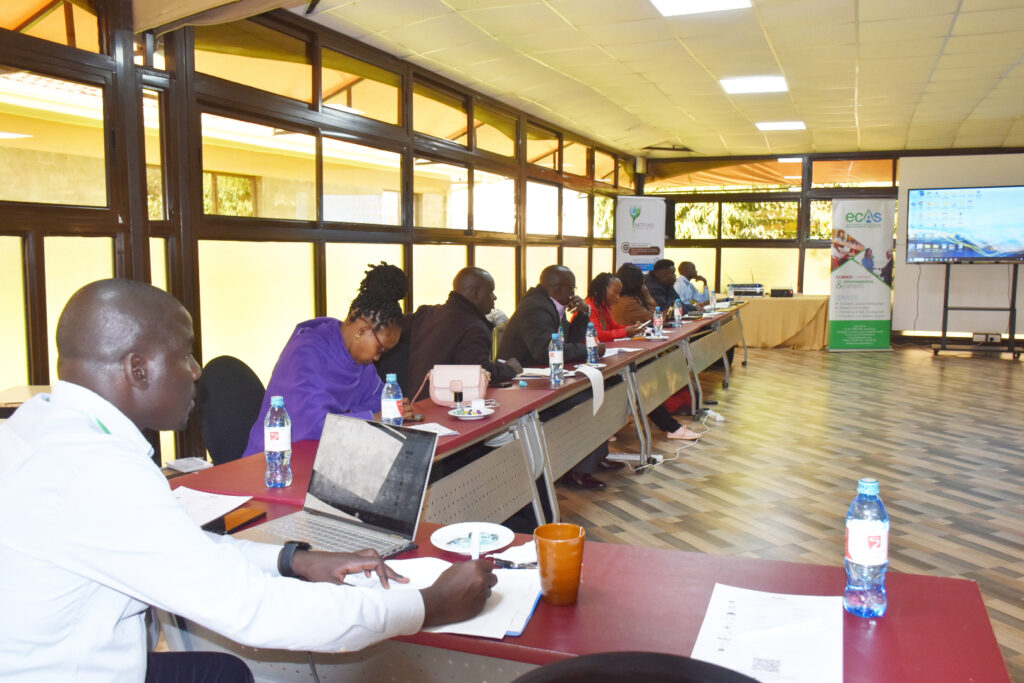
CONCEPT NOTE
INTERNATIONAL TRAINING ON IMPLEMENTATION OF FARMER FIELD SCHOOL PROGRAMMES
COURSE BACKGROUND
The Farmer Field School (FFS) approach is a powerful participatory education methodology developed to empower small-scale farmers through experiential learning. Originating in Asia and now adapted globally, FFS emphasizes hands-on training, group-based problem-solving, and local knowledge integration in sustainable agriculture.
Building on the foundational knowledge provided in the “Introduction to the FFS Approach”, this course focuses on the next step: designing and implementing large-scale FFS programmes that are context-specific and community-driven. It aims to guide organizations and practitioners on how to establish, manage, and scale these programmes in a way that strengthens local decision-making and supports sustainable development outcomes.
In a world facing increasing environmental, economic, and food security challenges, FFS programmes play a crucial role in building resilient food systems. This course equips stakeholders with the practical tools and strategic guidance to successfully roll out FFS interventions at scale.
COURSE OBJECTIVES OF THE TRAINING
By the end of this course, participants will be able to:
- Plan and initiate context-specific FFS programmes tailored to local agricultural needs.
- Identify the key roles, responsibilities, and training needs of all actors involved in FFS implementation.
- Develop and apply strategies to strengthen human capacity for sustainable programme delivery.
- Co-design participatory, adaptive FFS curricula with communities.
- Organize and deliver effective field schools aligned with seasonal agricultural cycles.
- Implement robust programme management practices, including budgeting, monitoring and evaluation (M&E), and impact assessment.
WHAT YOU WILL LEARN
By completing this course, participants will gain knowledge and skills on:
- The process to plan and initiate a Farmer Field School (FFS) programme
- The different roles and responsibilities in an FFS programme, including training needs
- Strategies to develop human capacities needed to support and sustain FFS implementation
- The co-creation process of defining FFS curricula in collaboration with local communities
- The activities required to effectively deliver FFS sessions throughout an agricultural season
-
Comprehensive programme management, including:
- Budgeting
- Monitoring & Evaluation (M&E)
- Impact assessment
- Reporting and documentation
DURATION AND PROGRAM
TARGET PARTICIPANTS
This course is designed for individuals involved in the planning, implementation, management, and evaluation of Farmer Field School programmes, including:
- Project Managers
- Project Formulators and Evaluators
- Government Staff (especially those working in agriculture and rural development)
- FFS Practitioners and Facilitators
- Agricultural Extension Officers
- Researchers and Development Partners
TRAINING MODULES
| No | Module | Details | |
| 1. | Planning and Initiating an FFS Programme |
This module introduces the key steps involved in planning and launching an FFS programme. It covers stakeholder engagement, needs assessments, and laying the foundation for effective implementation.
Topics Covered:
|
|
| 2. | Development of Human Capacity |
FFS depends on skilled facilitators and engaged communities. This module focuses on developing the human resources needed to run FFS effectively.
Topics Covered:
|
|
| 3. | Curriculum Development |
Effective FFS curricula are co-created with communities. This module outlines the participatory process of developing locally relevant and technically sound FFS curricula.
Topics Covered:
|
|
| 4. | Organizing and Running an FFS |
This module provides guidance on the actual implementation of the FFS sessions, including logistics, facilitation methods, and community engagement.
Topics Covered:
|
|
|
5.
|
FFS Programme Management |
A successful FFS programme requires robust management, funding, monitoring, and evaluation. This module focuses on programmatic aspects to ensure accountability and impact.
Topics Covered:
|
|
TRAINING STYLE
The modules will be taught through PowerPoint presentations, and lectures and will include a case study/field visit, breakout sessions, case studies and other interactive discussion components.
The course will also include a few guest speakers, both in person and via Zoom and other online learning platforms for overseas speakers. This provides useful real-world insights alongside the more theoretical aspects of the course.
The conference faculty shall consist of experienced decision makers, as well as practitioners and representatives from established educational and research institutions active around climate change, engineering and international development. Throughout the course, theoretical presentation of concepts will be moderated and more group discussions and plenary engagements will be optimized. PowerPoint presentations will be made by facilitators and resource persons, to highlight key concepts before embarking on group work.
GENERAL NOTES
- Training manuals and additional reference materials are provided to the participants.
- Upon successful completion of this course, participants will be issued with a certificate.
- We can also do this as a tailor-made course to meet organization-wide needs. Contact us to find out more: info@ecasiafrica.org.
- Payment should be sent to our bank account before the start of training and proof of payment sent to: info@ecasiafrica.org.
ABOUT ECAS INSTITUTE
The ECAS Institute designs and delivers independent and targeted training, research, and consulting services. Our work focusses on climate change and resilience building, carbon markets, renewable energy, nature-based solution, biodiversity conservation, agriculture and food systems, We are located in Nairobi Kenya and work across the African region. We have implemented training and research assignments in Kenya, Tanzania, Uganda, South Sudan, Somalia, Malawi, Rwanda, Congo, and South Africa. Globally, we have supported our partners from the UK, Denmark, Italy, Sweden, Germany, and USA.

